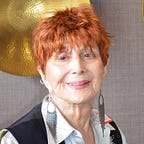Special Prosecutor Leon Jaworski Was One of the Watergate Heroes
Richard Nixon fired his predecessor, and hired the man who utilized the law that brought the president down.
By Judy Flander
Will, or possibly more likely, when will President Donald Trump resort to his reality TV tagline, “You’re fired!” in hopes of putting a stop to Robert Mueller’s investigation into into Russia’s interference in the 2016 election? Trump has made it abundantly clear — constant tweets of “witch hunt” and “no collusion” — that he’s got plenty to hide.
As the Mueller probe reaches its climax will there be a 2018 version of Nixon’s Saturday Night Massacre? That’s when the Watergate investigation was getting deep into the White House and an increasingly desperate President Richard Nixon gave orders to have Watergate Special Prosecutor Archibald Cox fired.
The result: Nixon’s attempt to kill Watergate failed spectacularly. His Attorney General Elliot Richardson, and Deputy Attorney General William Ruckelshaus refused to fire Cox and resigned. Nixon got Cox fired anyway and named Leon Jaworski Special Prosecutor.
Jaworski was famously unmoved by Nixon’s attempt to withhold the tell-tale tapes that connected him directly to the Watergate break-in. He took the case to the Supreme Court which ruled eight to nothing to command Nixon to release the tapes.
With that final blow, Nixon resigned, August 9, 1974, before he got impeached. His successor Gerald Ford pardoned him Sept. 8, 1974. Who would pardon Trump? Leon Jaworski went down in history as a hero.
Watergate Special Prosecutor Jaworski Steps Out
The Washington Star-News, Aug. 1, 1974: “I’m John Dean … from Cleveland, Ohio,” said the middle-aged man introducing himself to Watergate Special Prosecutor Leon Jaworski. Everybody laughed. The man was not, of course, the John Dean everyone, especially Watergate investigators like Jaworski, had come to know. This John Dean is a member of the International Platform Association, a group of people who crisscross the country giving speeches on any subject people will listen to.
The IPA, meeting at the Sheraton Park this week, honored Jaworski last night with its Winston Churchill Award. Afterward, Jaworski gave a speech on the need to educate children and youths “in the fundamentals of law in a free society and the responsibilities of leadership.” At a pre-dinner reception, Jaworski and his wife met briefly with IPA board members, including Dan Tyler Moore, director general, and Lowell Thomas, president.
Mostly everyone, including seeress and IPA member Jeane Dixon, took turns getting their pictures taken with Jaworski and each other; a plethora of IPA-ers had cameras at the ready constantly. In the hallway outside, the photographic fruits of the first two days of the convention were tacked to screens and neatly numbered for easy ordering. Mrs. Dixon figured prominently in at least a third of them.
Jaworski said he didn’t know what he was being honored for, and his wife said she didn’t know how they happened to have accepted this particular invitation. But they seemed pleased to be there and graciously shook hands with people in elaborate headgear, men in exotic evening jackets (Lowell Thomas’ was gold-embroidered on black) and women wearing everything from pretty evening gowns to costumes ranging from billowing yellow folds to a white Frederick’s of Hollywood type outfit, slit to the thigh to reveal a matching bikini and slit to the navel to reveal all.
Jaworski politely explained why he couldn’t speak about Watergate; any comment he might make, he said, might prejudice the Watergate cover-up case. “It’s so easy for things to leak out,” he said. So it was a nonpolitical evening. But there were political overtones which may or may not have been intentional. The Rev. Edward Elton, Senate chaplain, called on God to give the President “courage to do what is right … and forgiveness for all that is wrong in the present.”
Next, a telegram was read, congratulating the group for promulgating “accuracy of expression” and providing “an example of integrity.” The message, signed by Richard M. Nixon, was lightly applauded. In his speech, Jaworski remarked that as president of the American Bar Association, he had received “more letters deploring the example of white collar crime than any other form of criminal conduct, largely because such offenses so often are committed by individuals in places of leadership and trust.”
“There’s housecleaning to be done in the ranks of the old,” he said.
Originally published in The Washington Star-News, Aug. 1, 1974 as “Another John Dean Meets Mr. Jaworski
